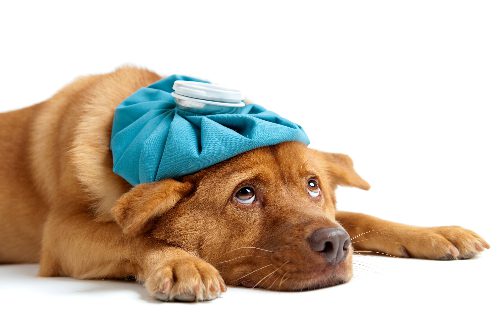Can Dogs Get Concussions?
If you’re reading this, chances are you’re like us—always on the lookout for ways to keep your pet safe and sound. Today, we’re diving into a topic that isn’t discussed commonly: Can dogs get concussions? Although this can be very rare, this could be essential knowledge for any pet owner.
Disclaimer: While we aim to provide valuable insights, this blog is not a substitute for professional veterinary advice. If you suspect your pet may have a concussion or any other health issue, it’s crucial to consult with a vet immediately. Apex Vets in Silver Spring, MD is here to help!

What is a Concussion and How Do They Happen?
A concussion is a type of traumatic brain injury (TBI) that temporarily interferes with normal brain function. They can occur due to various reasons like car accidents, falls, or collisions—basically, any forceful bump or blow to the head.
Signs Your Pet Might Have Suffered a Concussion
Your pet can’t tell you they’re not feeling well, so it is important to be observant. After any possible head injury, watch out for:
- Dizziness or loss of balance
- Confused or dazed behavior
- Sluggishness or lethargy
- Abnormal eye movement
- Vomiting
The Importance of Immediate Veterinary Care
If you’ve noticed any of the symptoms mentioned above after a head injury, the next step is getting your pet the medical attention they need. Time is of the essence; immediate vet care can make all the difference in the recovery process.
What to Expect During a Vet Visit for Suspected Concussion
Your vet will likely perform a comprehensive physical and neurologic examination. Tests may include X-rays, CT scan, or MRI scan to rule out fractures or other types of brain injuries. Treatment for concussions generally involves close monitoring and supportive care in the hospital to help your pet heal.
Prevention is Better Than Cure: Protecting Your Pet from Concussions
We can’t bubble wrap our pets (as much as we’d like to!), but there are some preventative measures you can take to minimize the risk of a concussion.
Tips to Minimize Concussion Risks for Your Pet
- Always use a leash during walks to keep them safe from traffic.
- Supervise your pet during playtime, especially in new environments.
- Pet-proof your home by removing potential hazards like slippery floors, sharp corners, and high surfaces to climb.
Remember, if you ever find yourself in a situation where you suspect your dog or cat has suffered a concussion, seek veterinary care ASAP.
We covered a lot today, but that’s what we’re here for—to equip you with the info you need to keep your pets healthy and happy. Feel free to share this blog with others; you never know when it might come in handy!
